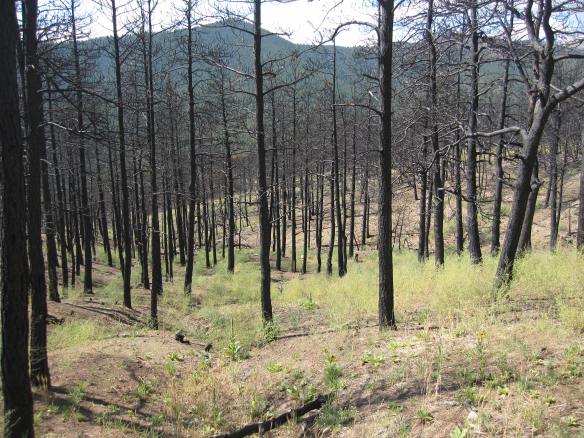 Hi, everyone – I’ve written a couple posts, but I need to introduce myself.
Hi, everyone – I’ve written a couple posts, but I need to introduce myself.
Like many of you, my academic/professional interest in ecology is intertwined with my upbringing and appreciation for the natural world. Continue reading

 Hi, everyone – I’ve written a couple posts, but I need to introduce myself.
Hi, everyone – I’ve written a couple posts, but I need to introduce myself.
Like many of you, my academic/professional interest in ecology is intertwined with my upbringing and appreciation for the natural world. Continue reading

Forest that burned during the 2010 Four Mile Fire. Before the fire, it was thinned to reduce risk of crown fire. However, it was thinned too little to be an effective fuels treatment. It is hard to sell the idea that cutting down many trees can actually be good for the environment. Kristen Pelz, 2011.
By Kristen Pelz
The intense wildfire season has put a spotlight on fire ecology and forest management in the general media. There has been a lot of talk about active forest management and its potential to reduce property losses due to catastrophic fire. Many western forests have had an “unnatural” buildup of fuels following a century of active fire suppression. As a forest ecologist, it is great to see widespread enthusiasm for restoration of these forest’s structure and function. Continue reading
While Colorado’s wildfire season is really only just beginning, the state has already been struck by multiple serve fires, including the WaldoCanyon and HighPark fires.
As I write this post, 9 wildfires are ablaze in the state in varying degrees of containment and control, and that number is far from static. Each lightning storm brings a wave of fire outbreaks and a fear that any strike could result in devastation. Continue reading
You must be logged in to post a comment.